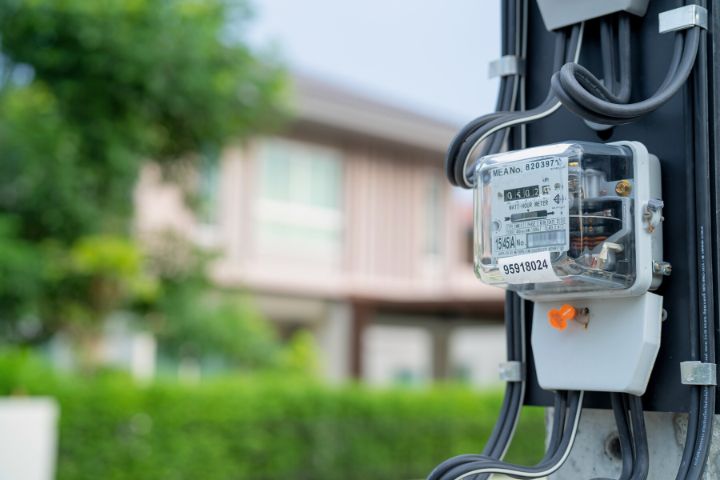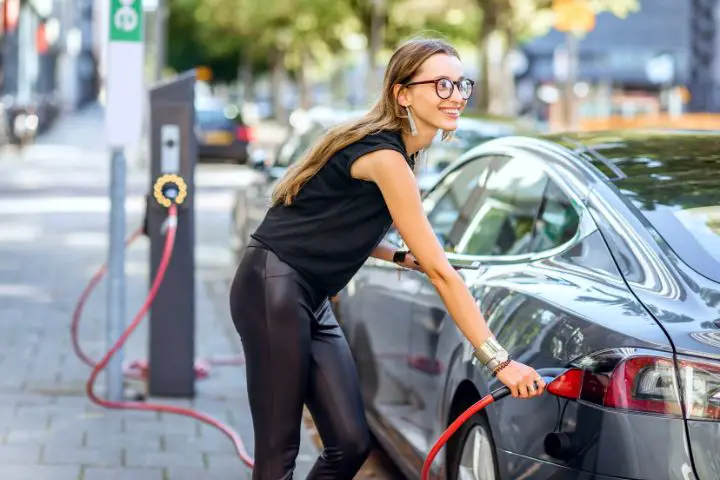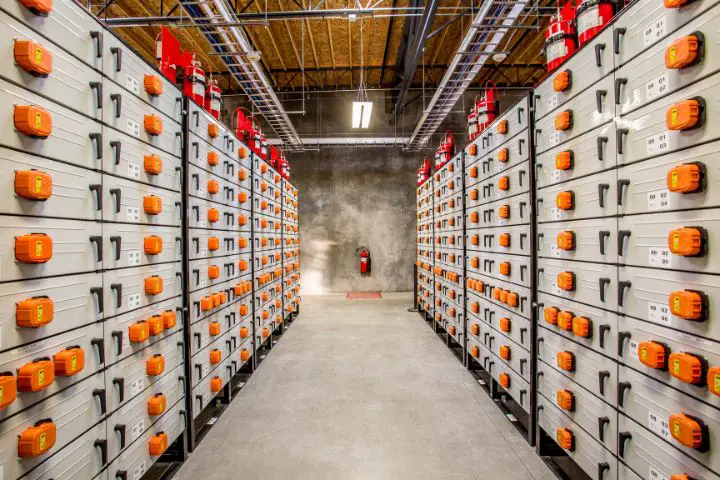How to Reduce Energy Consumption
Energy consumption is a hot topic in today’s society.
With growing environmental concerns and climate change issues on the rise, it’s essential that we talk about how we can effectively manage the energy we use.
In this article, we will discuss what energy consumption is, the types of energy consumption, the impact excessive energy consumption has on the environment and health, and key tips on how to reduce energy consumption.
Related Articles: Wind Turbine vs Solar Panel for Home and Energy Saving Tips For A More Eco-Friendly Home
What is Energy Consumption?
Energy consumption is defined as the amount of energy used by individuals, businesses, and governments. It includes electricity usage, transportation fuels, and other energy sources. Energy consumption can have a substantial impact on our environment and health, with excessive energy consumption leading to increased carbon emissions and a higher carbon footprint.
Sustainability is an important concept in reducing energy consumption – it is defined as a system that meets the needs of current users without compromising the ability of future generations to meet their own needs. Reducing energy consumption is an important part of achieving sustainability.
What is Energy Storage?
Energy storage is the process of storing energy for later use. It can be used in many different ways, such as storing solar energy during the day for use at night or storing electricity from a wind turbine for use when there is no wind. Energy storage can help reduce energy consumption by allowing people to use stored energy instead of relying on energy sources that use fossil fuels.
Is Less Energy Consumption Bad for the Economy?

It is often assumed that less energy consumption is bad for the economy because it reduces demand and, therefore, economic growth. However, this is not necessarily true. Reducing energy consumption can actually have a positive effect on the economy as it reduces costs associated with energy production, such as fuel costs, and frees up resources to be used elsewhere in the economy.
Impact of Excessive Energy Consumption on Health
Excessive energy consumption has several negative impacts on health.
The burning of fossil fuels releases pollutants into the air, which can lead to respiratory illnesses such as asthma and bronchitis. It can also lead to air pollution, which can cause headaches, eye irritation, and other health problems.
In addition, excessive energy consumption increases greenhouse gas emissions which can lead to climate change, which in turn can lead to extreme weather events that can have a detrimental effect on human health.
Impact of Excessive Energy Consumption on the Environment
Excessive energy consumption has a negative impact on the environment as it increases carbon emissions and contributes to climate change.
Carbon emissions trap heat in the atmosphere, which causes temperatures to rise, leading to extreme weather events such as droughts and floods. This can have a devastating effect on ecosystems and wildlife. In addition, burning fossil fuels releases pollutants into the air which can lead to acid rain and water pollution.
Types of Energy Consumption

Electricity consumption is one of the most common forms of energy consumption. It includes electricity used in homes and businesses for lighting, heating, cooling, cooking and other uses. Renewable energy sources such as solar and wind power are becoming increasingly popular as they do not emit any carbon dioxide and are, therefore, more environmentally friendly than traditional sources of electricity generation.
Workplace energy consumption includes electricity used in offices, factories, warehouses and other types of workplaces. Household energy consumption includes electricity used in homes for lighting, heating, cooling, cooking and other uses. Transportation energy consumption includes the use of gasoline and diesel in cars and other vehicles.
How to Reduce Energy Consumption
Reducing energy consumption has several benefits, including reducing costs associated with energy production, reducing carbon emissions and reducing air pollution.
The first step in reducing your energy consumption is understanding how much energy you are currently using. This involves looking at your household, workplace, transport, and garden energy consumption.
Reduce Energy Consumption at Work
Workplace energy consumption can be looked at by understanding what machines and processes are using the most energy. For example, you may want to look at the number of computers in operation or the type of lighting that is being used.
Reducing energy consumption at work starts with reducing office temperature. Keeping the office temperature at a comfortable level will reduce the need for heating or cooling systems which in turn will reduce electricity usage.
Implementing sustainable practices such as switching off lights when leaving rooms and using recycled paper products can also help reduce electricity usage in the workplace. Making use of natural light where possible will also help reduce electricity usage as it does not require any additional electricity to be used for lighting purposes. Finally, using energy-efficient appliances such as LED lights or power strips can help reduce electricity usage in the workplace.

Reduce Energy Consumption at Home
For household energy consumption, you need to look at the amount of electricity you are using for appliances such as lights, air conditioning, and other electronics. You should also take note of your water usage, as this will affect your energy usage too.
Reducing energy consumption at home starts with upgrading insulation which will help keep heat in during cold months and keep heat out during warm months, thus reducing the need for heating or cooling systems which in turn will reduce electricity usage.
Installing energy-efficient appliances such as LED lights or power strips can also help reduce electricity usage in the home. Practicing sustainable habits such as unplugging unused appliances or turning off lights when leaving rooms will also help reduce electricity usage in the home.
Finally, garden energy consumption should also be taken into consideration. If you have a large garden with a lot of plants, you will likely be using a lot of water and electricity in order to maintain it.
Reduce Energy Consumption Through Transportation
Transport energy consumption is often overlooked, but it can be quite significant. You need to assess how much fuel you are using for commute and errands. You should also look at whether you could use public transport or carpool instead of driving your own car.
Reducing transportation-related energy consumption starts with using public transportation when possible, as it reduces gasoline or diesel usage compared to driving a car or truck by oneself. Carpooling is another great way to reduce transportation-related energy consumption as it allows multiple people to share a vehicle which leads to fewer vehicles being driven, thus reducing gasoline or diesel usage.
Electric vehicles are becoming increasingly popular and are a great way to reduce transportation-related energy consumption as they do not emit any carbon dioxide or other pollutants into the air like gasoline or diesel vehicles do. Finally, implementing sustainable driving habits such as driving slower or avoiding long trips can also help reduce transportation-related energy consumption.

By following these tips, we can make a difference in reducing our overall energy consumption and help create a more sustainable future for ourselves and future generations.
For further reading about reducing our overall energy consumption, you may want to check out the Environmental Protection Agency (EPA) or the Department of Energy.
Making small changes can add up to make a big difference when it comes to reducing our overall energy consumption, so let’s all do our part to create a sustainable future!\
FAQs
What is the best form of energy to use?
You should then consider why energy is so expensive and what type of energy is suitable for you. For example, renewable energy sources such as solar and wind power may be more cost-effective in the long run than traditional sources such as coal or gas.
Reducing energy consumption is an important step towards achieving sustainability and protecting both our health and the environment from the effects of excessive energy consumption.
How much energy does an average household use?
The amount of energy used by an average household depends on many factors such as the size of the home and how many people live in it. On average, households in the United States use around 877 kWh per month.
Why is energy storage important?
Energy storage is important because it allows you to store excess electricity that can be used at a later time when demand increases or renewable sources are not available. This also helps prevent blackouts and helps ensure a reliable supply of electricity.

What are some energy-efficient home improvements I can make?
Some energy-efficient home improvements you can make include adding insulation and installing energy-efficient windows and doors. You can also consider upgrading to energy-efficient appliances such as refrigerators, washing machines, and dishwashers. These improvements can help reduce your energy consumption and save you money on your monthly energy bills.
What are some DIY materials I should have at home to reduce energy consumption?
If you want to tackle energy-saving projects on your own, there are some basic DIY materials you should have on hand. These can include weather stripping and caulk for sealing air leaks, a digital thermometer for measuring the temperature in different areas of your home, and a set of screwdrivers and pliers for making simple repairs and adjustments. You may also want to invest in a programmable thermostat and some energy-efficient light bulbs. With these materials, you can start making simple energy-saving improvements to your home.
Are there any government incentives for making energy-efficient home improvements?
Yes, there are many government incentives available for making energy-efficient home improvements. These incentives can include tax credits, rebates, and other financial incentives that can help offset the cost of upgrading to energy-efficient appliances and making other energy-saving improvements to your home. You can check with your local government or utility company to learn more about the specific incentives available in your area.






